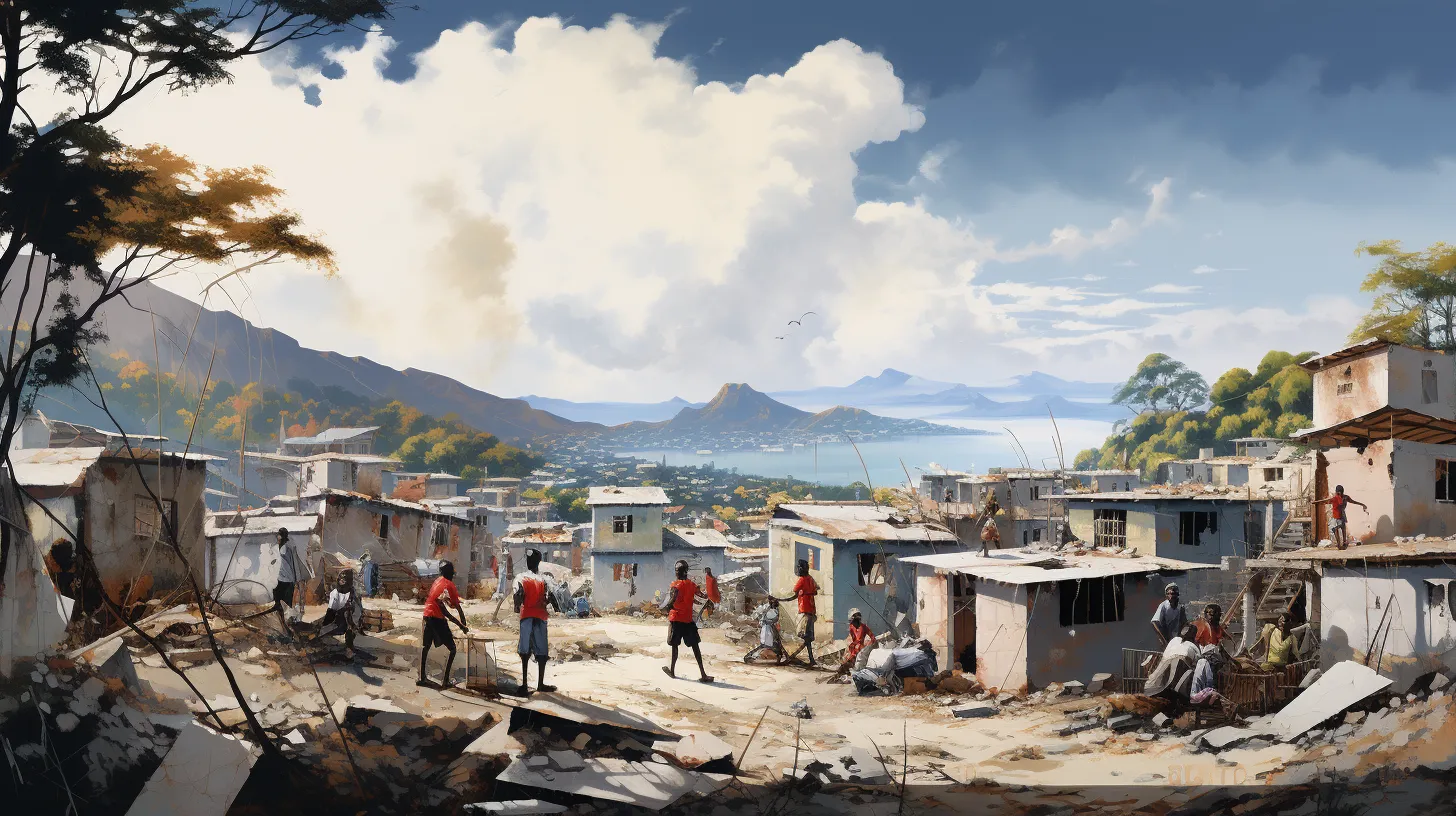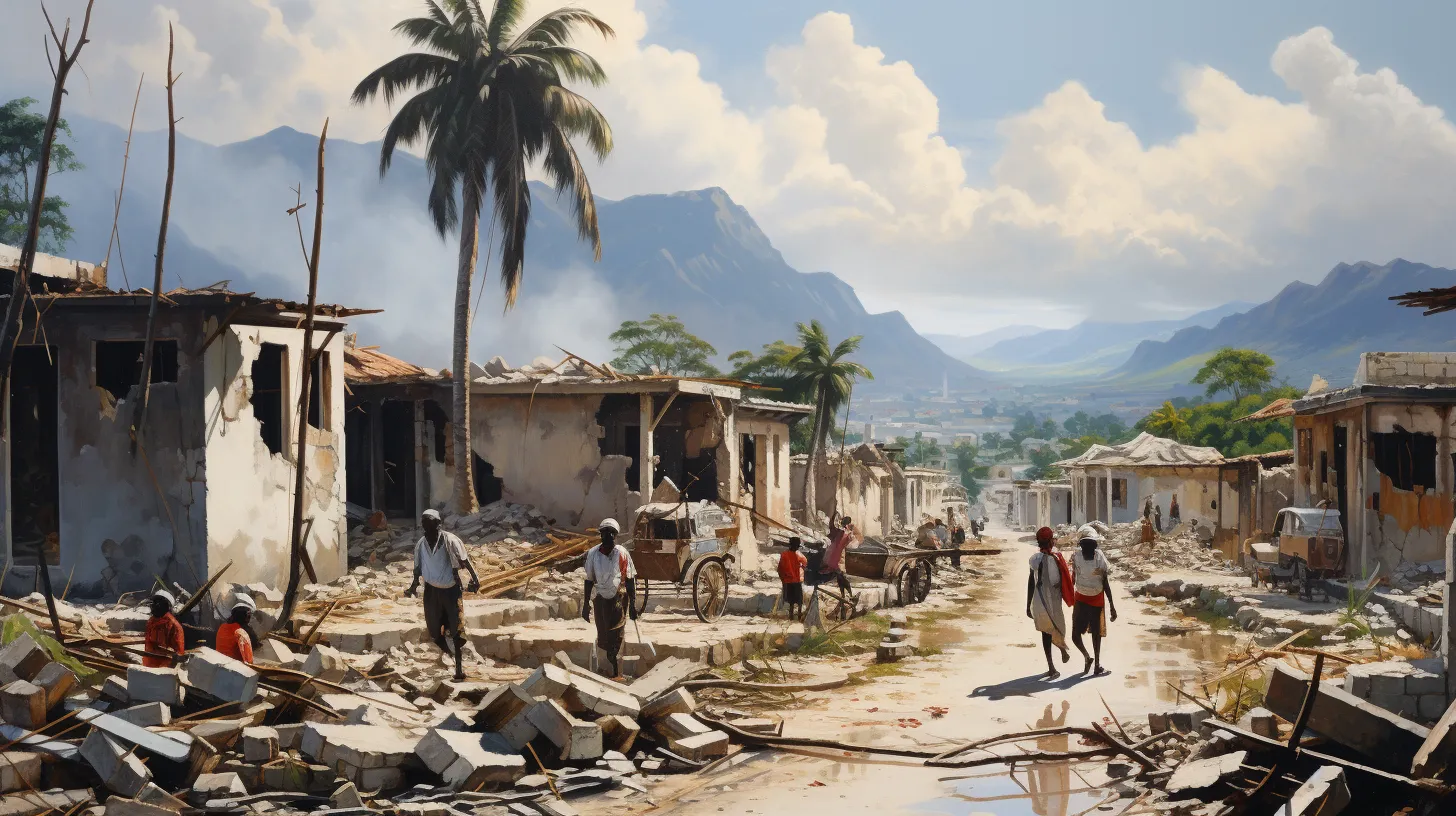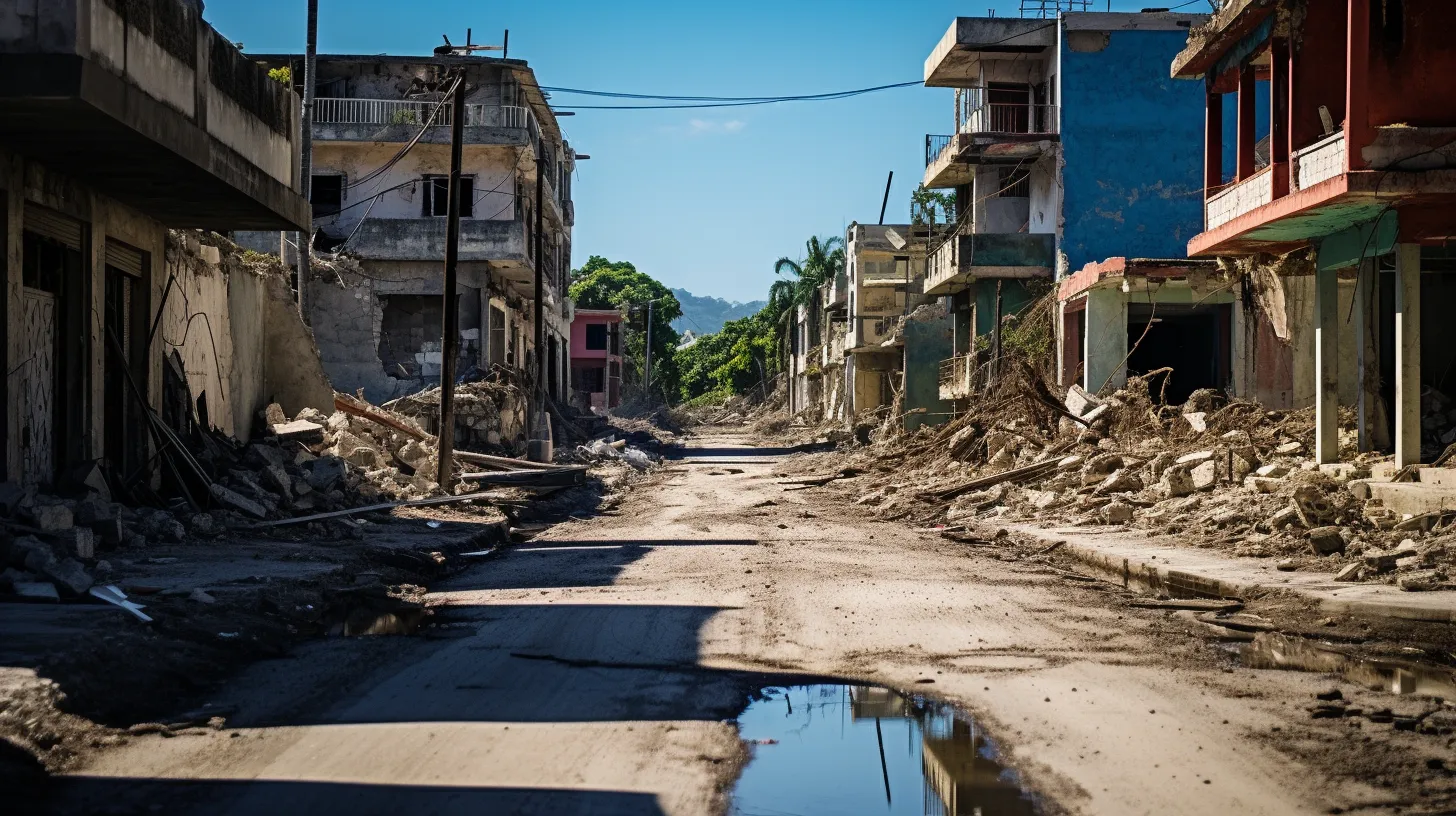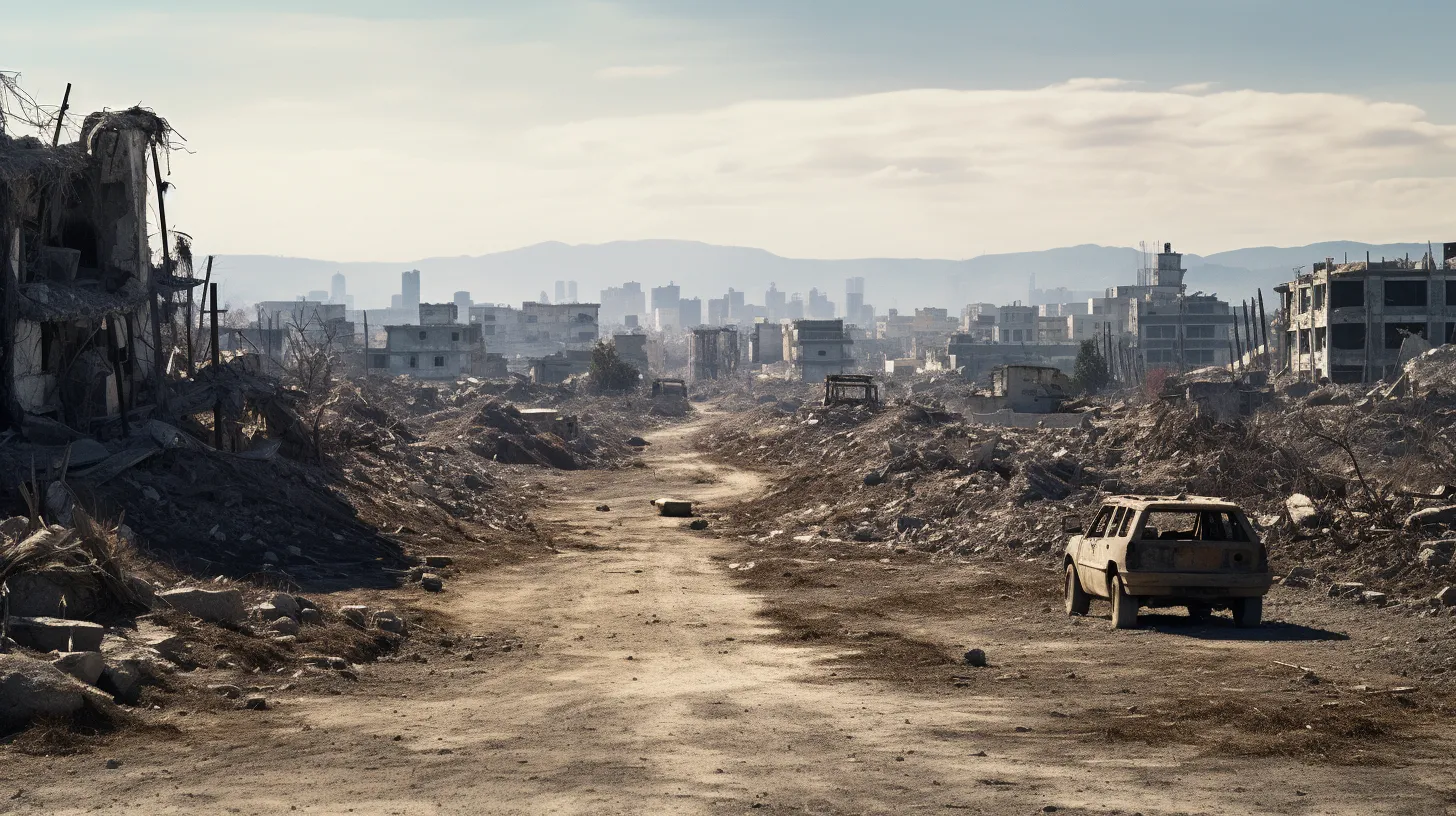Haiti’s poverty stems from a complex blend of historical, economic, and environmental factors. The country’s quest for independence, alongside political unrest, corruption, and natural calamities, has significantly contributed to its enduring poverty.
Moreover, the lack of access to education and healthcare, coupled with economic hardships, has further impeded Haiti’s progress. The enduring effects of colonialism, the weight of debt, and susceptibility to climate change have also played a pivotal role.
Understanding the multifaceted nature of Haiti’s poverty is crucial for addressing the underlying causes and striving towards sustainable solutions for the country’s future.
Historical Background of Poverty in Haiti

It is widely acknowledged that Haiti’s historical background of poverty is deeply rooted in its origins as a colony and its enduring struggle against colonialism and exploitation.
Under French colonial rule, Haiti was the wealthiest colony, but this prosperity was built on the backs of enslaved people. The economic success was marred by the French debt that Haiti was forced to pay, plunging the nation into poverty.
This historical injustice continues to fuel political instability and economic challenges, contributing to Haiti being the poorest country in the Western Hemisphere.
The legacy of wealth and power from its colonial past has been overshadowed by root causes of poverty, stemming from exploitative practices and international interventions.
These historical factors have significantly shaped the trajectory of poverty in Haiti, laying the foundation for the country’s ongoing struggles.
Impact of Colonialism on Haitian Economy

How did colonialism impact the Haitian economy, shaping its trajectory of poverty and economic struggles?
Haiti, once the richest colony in the Caribbean, became the poorest country in the Western Hemisphere due to the devastating impact of colonialism. France forced Haiti to compensate former French colonists for lost property, plunging the nation into a crippling debt that hindered economic and social development.
The United States’ occupation from 1915 to 1934 further exacerbated economic challenges by controlling Haiti’s finances and reintroducing forced labor. The historical exploitation of Haiti by foreign powers for its resources, such as sugar and coffee, contributed to its economic struggles.
Additionally, the global market exploited cheap labor in Haiti, further compounding its economic challenges. These historical injustices continue to shape Haiti’s economic struggles and poverty today.
Political Instability and Economic Decline

Frequently, political instability and economic decline have plagued Haiti, hindering its development and perpetuating a cycle of poverty.
Haiti’s history of political upheaval stems from its struggle for independence from French colonists and subsequent international boycotts. Human rights violations, elite power struggles, and interference from foreign governments have further exacerbated these issues.
The lack of stable governance has led to corruption, mismanagement of funds, and a lack of transparency, hindering economic growth and development initiatives. Gang violence and insecurity, coupled with frequent changes in leadership, have also deterred foreign investment.
The absence of strong democratic institutions and the rule of law has perpetuated this cycle of instability and economic decline. These factors collectively contribute to the causes of Haiti’s ongoing economic challenges.
Environmental Degradation and Natural Disasters

Environmental degradation and natural disasters have significantly impacted Haiti’s ability to alleviate poverty and achieve sustainable development. Deforestation and soil erosion have exacerbated the effects of natural disasters, leading to reduced agricultural productivity. The country is highly vulnerable to hurricanes, earthquakes, and floods, especially during the rainy season.
Overpopulation has also contributed to environmental degradation, as the demand for resources surpasses the land’s carrying capacity. The lack of advanced agricultural technology further hampers productivity, perpetuating the cycle of poverty.
Mismanagement of natural resources and insufficient disaster preparedness have deepened the causes of Haitian misery since. Addressing these issues is crucial for Haiti to break free from the environmental and economic challenges that have plagued the nation for decades.
International Aid and Development Efforts

International aid and development efforts have often failed to effectively address the root causes of poverty in Haiti. Despite significant amounts of humanitarian aid, the impact on poverty alleviation has been limited. Foreign governments and international organizations have imposed economic and political policies that haven’t adequately addressed Haiti’s structural challenges.
Moreover, limited investment in key sectors such as agriculture and manufacturing has perpetuated the cycle of poverty. The United Nations and other humanitarian organizations have played a role in providing aid, but less than 5% of humanitarian aid is channeled through the Haitian government, hindering sustainable development efforts. The perceived corruption and structural problems within the Haitian government have also led to slow assistance from international donors.
Addressing poverty in Haiti requires a comprehensive approach that addresses economic, political, and human rights issues while empowering local communities.



